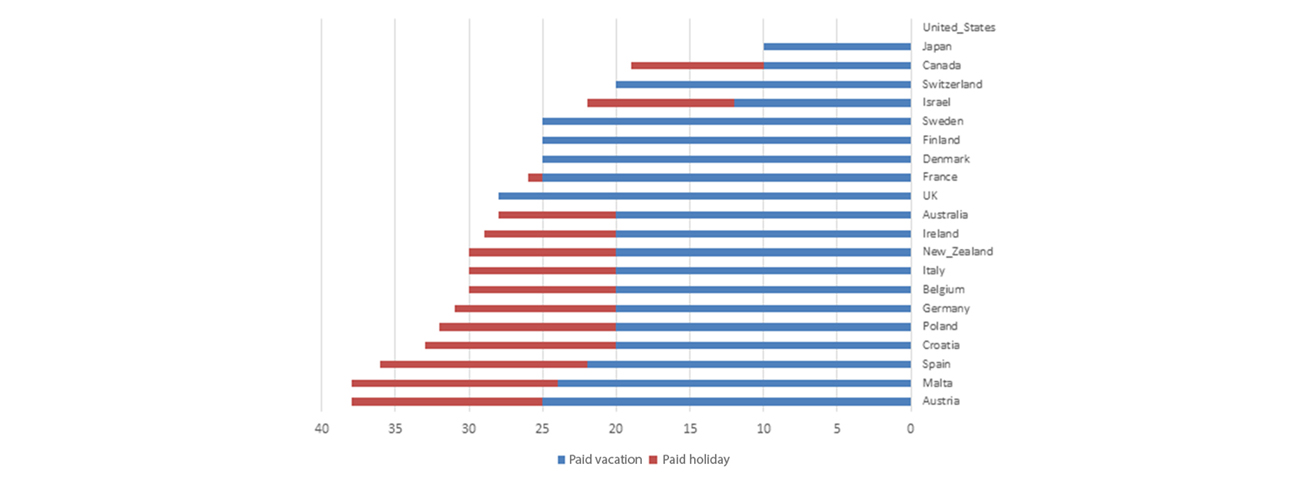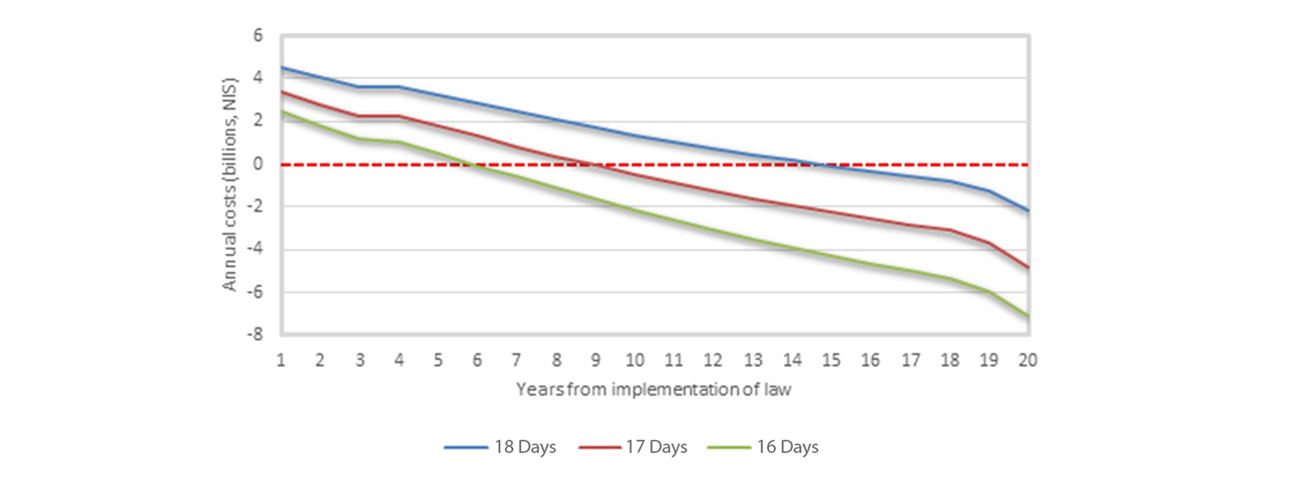Israel’s future labor market needs updated models
Updated models for the portability of employee benefits and flexibility in work hours

The current Israeli model of welfare provision and labor laws, which assigns certain social benefits based on an employee’s seniority with the current employer, is unsuited to an increasingly dynamic labor market in which switches between jobs are prevalent
At the Eli Hurvitz Conference on Economy and Society, IDI researcher, Prof. Yotam Margalit presents findings from his research on necessary reforms in the Israeli model of employment and welfare provision; in particular - the findings pertaining to the portability of employee benefits and reforming the “Hours of Work and Rest Law”.
On the Portability of Employee Benefits:
Labor laws stipulate that the degree of eligibility for social benefits such as vacation days, convalescence pay, and sick days is contingent on an employee's level of seniority in their workplace. Such legislation is detrimental to the flexibility and competitiveness of the Israeli labor market, as it creates unwarranted barriers for workers considering a potential move between jobs.
Problems with the current model: The current model creates unnecessary barriers to changing jobs switching and thus reduces mobility in the labor force; there is weak moral justification for making social benefits contingent on an employee’s seniority in a specific workplace; it poses a double penalty on more vulnerable workers with lower job security; first-- these workers pay the price for the frequent need to look for a new job; and second—with each transition, they move down to the bottom rung on the social benefits “ladder”.

Main Recommendations
Sever the connection between eligibility for basic social benefits from seniority with the employer: The link between the degree of eligibility for basic social benefits and the employee’s seniority at his current place of work must be severed. In its place, we recommend transitioning to a uniform eligibility model with regard to annual vacation days and convalescence pay, and to an insurance-based model with regard to sick pay.
Reforming the "Hours of Work and Rest Law"
Legislated in 1951, the law has a direct and significant impact on key aspects of the Israeli economy and society: the numbers of hours workers spend on their jobs, labor productivity, workers’ ability to bridge between the demands of the job and their private lives, and their level of job satisfaction.
This, despite the dramatic changes that the Israeli economy and labor market have undergone, among them the increase in women’s participation in the labor force, the introduction of new technologies enabling long-distance employment, and the increased prevalence of “non-traditional” working arrangements (such as employment through job contractors and temporary employment contracts). These and other changes have led to a growing sense among both workers and employers that current legislation regarding labor laws is incompatible with an evolving labor market.
The Central Bureau of Statistics’ Social Survey of 2016, revealed that 41% of employees are dissatisfied with the current balance between their work and other areas of their lives; 48% reported that most of the time they work under very rigid timetables; and 52% responded that they find it difficult during the work-week to devote “one-or-two hours” to family or personal matters due to the demands of their jobs. Furthermore, there is a 7% (or 2.5 weekly hours) gap between the average annual working hours in Israel and in other OECD countries. These differences are reflected in the OECD’s Better Life Index, which among other things examines the work-leisure balance according to several parameters. Compared with other developed countries, Israel ranks close to the bottom (32 out of 38 countries), confirming that the work--leisure balance in Israel is highly problematic.
Employees and employers have different priorities with regard to flexibility, and these are not necessarily compatible with one another. Employees seek greater flexibility in their work hours and employment arrangements, which will allow for a better balance between work and other areas of life. In contrast, employers seek greater flexibility in their ability to distribute working hours over a given time period, as this directly affects the calculation of overtime pay. Rather than working hours being calculated on a daily basis, as is the case today, a monthly or quarterly calculation will allow them greater flexibility in how they divide up their work assignments.
Main Recommendation
A mechanism for flexible work arrangements: Such a mechanism will address employees’ needs and priorities while taking into consideration those of the employer. Extension of the Overtime Reference Period: Extending the overtime reference period will enable employers to implement an efficient and more economical employment model.
Paid holiday and paid vacation, by country (2016)

Projected annual cost of transition to uniform eligibility in vacation days (billions, NIS)

